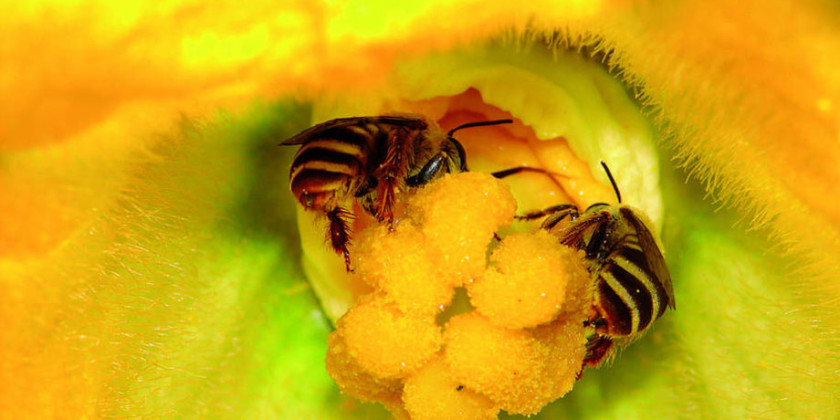Mother Nature and the FAO has a labor-free cure-all to help solve food security – bees. Moving from flower to flower, these natural pollinators determine crop yields. One out of every three bites of the food we eat is pollinated by bees. However, there has been a 30% decline in the bee population in the US, but this is also occurring in Canada and western Europe and small farms throughout the world. This has major consequences and financial impact on our agricultural supply and production, higher food prices, health, and sustainability. (See: “To Bee or Not to Be in New Jersey.”)
Pesticides and climate change all bear a role in colony decline. Higher temperatures cause flowers to open at irregular times cutting off the bee’s food source and frequency of visits to flowers to sustain both the bees and crop production. According to an FAO report, “improving pollinator density and diversity – in other words, making sure that more and more different types of bees and insects are coming to your plants – has direct impact on crop yields.” Benefiting from bee diversity are developing countries’ small-holder farmers as well as larger farms. Through better agricultural planning to ensure that bees are able to visit and pollinate these flowers, we’re working in tandem with nature to insure our sustainability and health and to combat hunger. (See: “Bees Can Help Boost Food Security of 2 Billion Small Farmers at No Cost.”)
For more stories, see Diplomat Artist: “Social Responsibility Entrepreneurship” and “Animal Welfare Ambassadors“.




